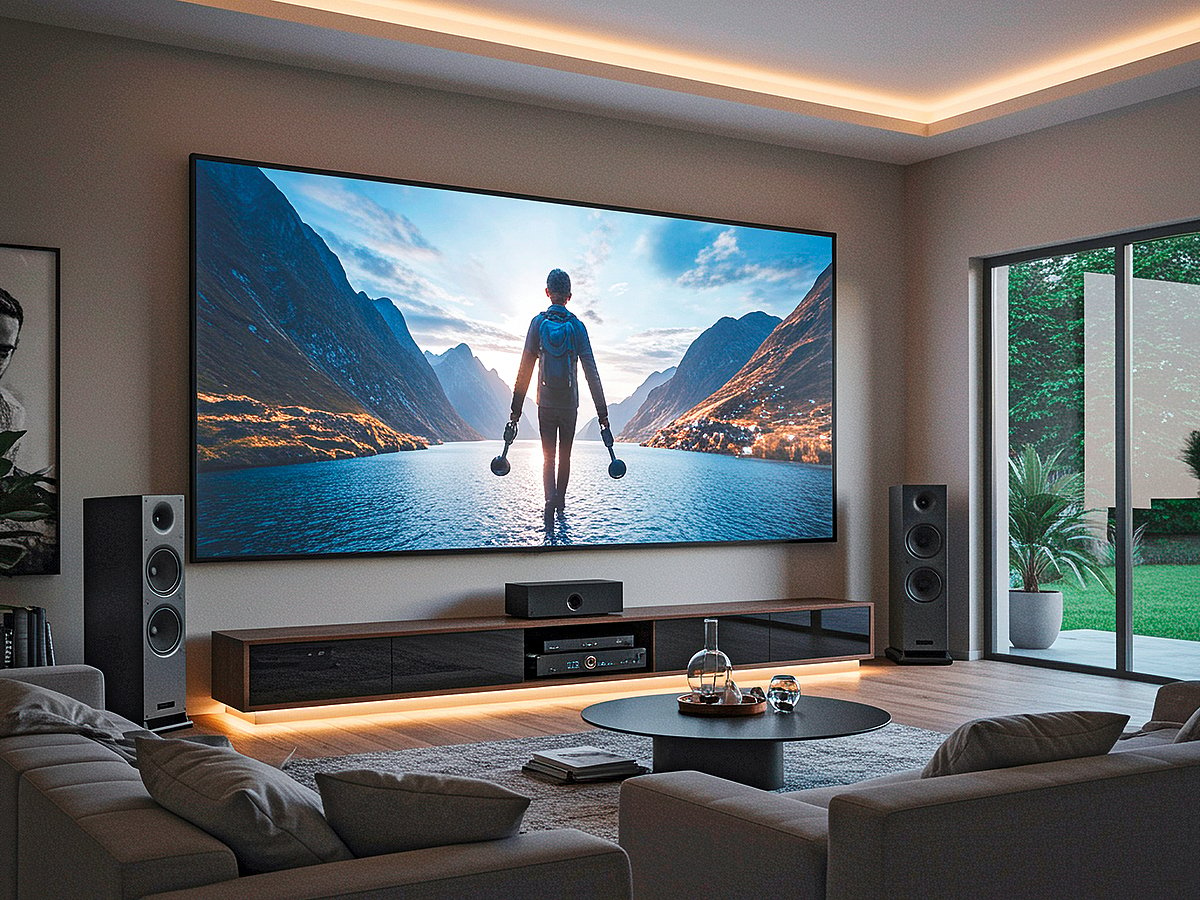Smart speakers and connected TVs redefining brand presence in GCC homes
Devices embed global brands into Arabic-speaking homes and multi-generational families

Today, the boundary between a physical device and full brand presence has blurred. Devices such as smart speakers, connected TVs, and even AI-powered assistants like Yango Yasmina are no longer passive objects. They are becoming active participants in family life, interacting with different members of the household in personalised and meaningful ways.
Smart speakers are a particularly interesting case. We used to think it was simply convenient to be able to request your favourite song, or the weather report; they now occupy a unique cultural and technological space. They are extensions of global brands through the “personalities” the products now have. The Yango Yasmina device is a great example of this phenomenon in the GCC. It speaks Arabic, understands context, and is programmed to respond differently depending on who in the family is addressing it; be it a child asking for a bedtime story, a teenager streaming music, or a parent managing their daily tasks.
This personification of technology represents more than convenience. This evolution embeds brands into the rhythms of daily life and our homes, creating relationships that feel less like transactions but that bring increasing amounts of depth. For companies, that intimacy is invaluable. Unlike advertising impressions on a screen, these interactions take place in the home; this subtle but tangible difference affects perceptions and loyalties in ways traditional media and advertising cannot.
Digital ecosystem
At the core of this evolution lies a paradox. We live in a world increasingly defined by software, apps, and platforms, but for companies like Apple, Yango, and Google, the physical device remains essential. Smart speakers, smart TVs, and connected appliances are the anchors of what is often called the digital ecosystem.
For Apple, the iPhone remains the gateway into a universe of services. Millions of people now exist in the Apple digital ecosystem: the App Store, iCloud, Apple TV, Apple Music. For Yango, a smart speaker like Yasmina is not simply a product. This physical device is the bridgehead into mobility services, e-commerce, and digital content on Yango Play. For Google, devices like Nest speakers and Chromecast-enabled TVs extend the reach of Search, YouTube, and Google’s advertising ecosystem directly into the living room.
These companies understand that once a device is in your home, it occupies a privileged position in your daily attention cycle. The device becomes sticky, embedding the brand into everyday behaviour.
Shared experience
Smart speakers may grab the headlines, but connected TVs represent another critical frontline in the battle for digital ecosystems. In the GCC, the adoption of connected TVs is accelerating, fuelled by the popularity of streaming platforms, sports subscriptions, and Arabic-language content. For families, the television remains a shared experience. For technology companies, it is a massive screen in the heart of the home that can deliver content, commerce, and advertising.
Smart speakers, connected TVs and the digital personalities companies present via these devices are strategic platforms. They represent the accelerating advance to personalise recommendations, influence viewing habits, and even insert regionally relevant advertising, turning the TV into a data-rich ecosystem.
Cultural implications
For the GCC, the rise of smart home ecosystems has distinct cultural and economic implications. Families in the region often live in multigenerational households, which makes devices capable of adapting to different age groups and languages especially valuable. A speaker that can entertain children in Arabic, provide productivity tools for adults, and respect privacy, religious and legal boundaries becomes more than a gadget. In the region, the assurance that is created by devices being compliant with the values of a home means it can be trusted.
The Gulf’s growing appetite for digital services and its strategic push into AI and smart infrastructure make the region an attractive market for companies building these ecosystems. Devices like Yasmina are symbols of localisation for super brands; they prove that global brands are recognising and investing in the cultural and linguistic needs of the region.
What we are witnessing is the advance of brands into the private spaces of our homes, mediated by physical devices that act as both platforms, educators, enablers and companions. Smart speakers and connected TVs are next-generation and hyper-sophisticated consumer electronics as they are the entry points into vast ecosystems of content, commerce, and services.
The presence of devices like Yango Yasmina in GCC homes illustrates how quickly this shift is happening. It also highlights a truth often overlooked in the software age: hardware still matters. The companies that dominate tomorrow’s digital economy will not only build the smartest apps but also place the most trusted and engaging devices in our homes.
In the end, the smart speaker on your kitchen counter or the connected TV in your living room is not just technology. It is the voice, face, and personality of a brand, and one that is increasingly woven into the fabric of daily life in the Gulf.
Chris Redmond is a global tech executive who is now an entrepreneur in the media tech space
Network Links
GN StoreDownload our app
© Al Nisr Publishing LLC 2026. All rights reserved.